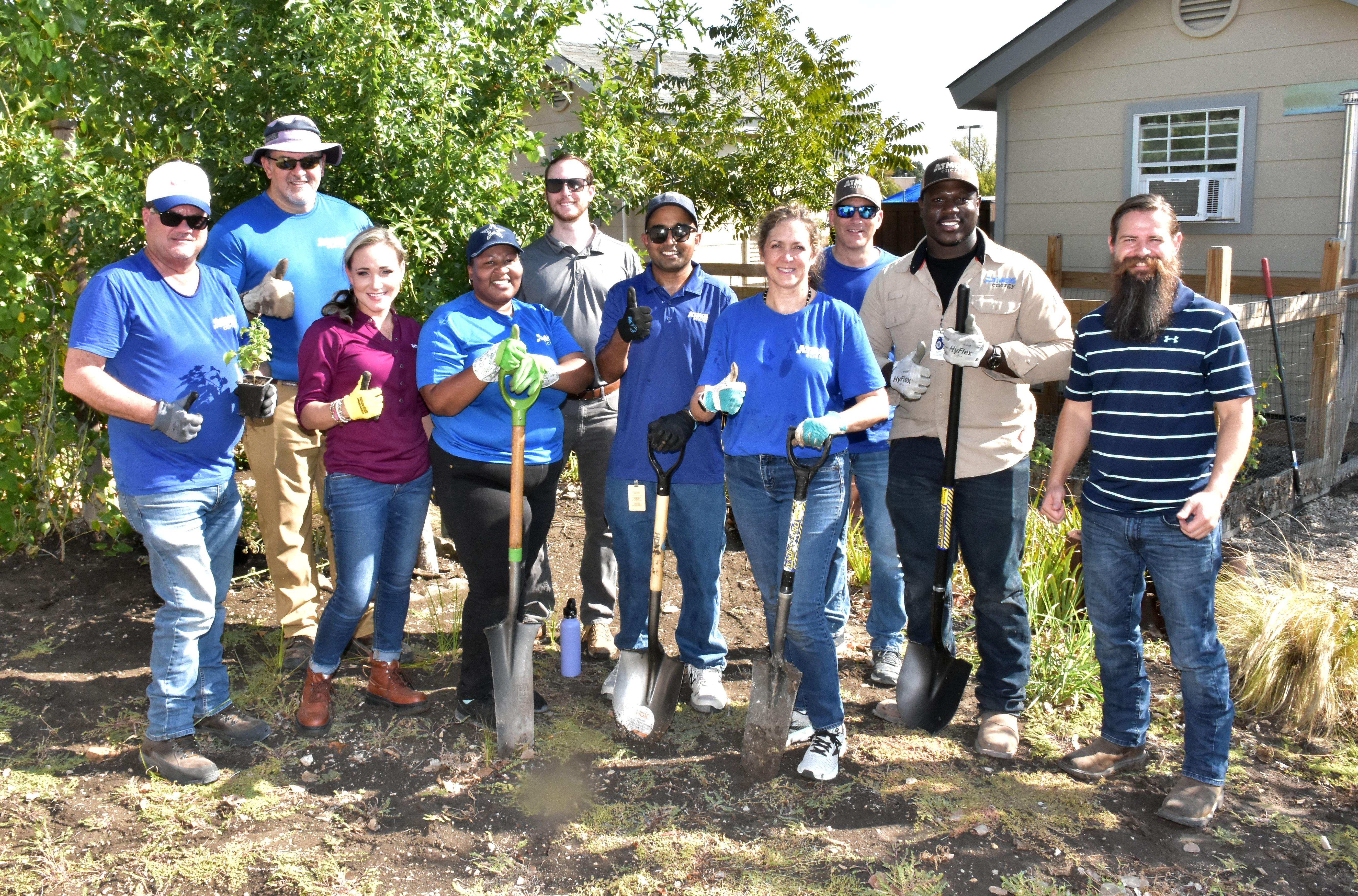RECENT SEARCHES

Two years ago, when a 43,000 square-foot plot of land sat idle next to Gas City at the Charles K. Vaughan Center, Environmental Practices Director Stephanie Engwall collaborated with Fred Beversdorf and Dennis Daigle (two employees who have since retired from the company) on an opportunity to Make a Difference in support of our commitment to environmental stewardship. Engwall and the team proposed a transformative project to increase biodiversity, promote awareness of native species, and beautify the land, and thus the seeds were planted both literally and figuratively for what would soon become the Charles K. Vaughan Center Pollinator Garden. The garden, which recently achieved “Silver” certification from the Wildlife Habitat Council, provides a natural habitat and food source for pollinators like bees, butterflies, birds, and insects that are a vital part of our local ecosystem. The garden also creates educational opportunities for employees and other visitors to learn about the importance of biodiversity.
“We started this process in March 2023 by collecting baseline data to determine species currently present and overall vegetative cover at the site,” explained Engwall. “Much of the site was unvegetated, and the rest tended to be populated with non-native vegetation. Based on the size and location of the planting area and the plantings that were already established, we developed a design plan.”
Project planning kicked off the following month between Atmos Energy and Groundwater and Environmental Services (GES), an outside consultant we engaged to help determine the scope of work, schedule of events, and a detailed map of the proposed garden area. The team also identified native species to be planted as well as additional features like walking paths, bird boxes, a bee motel, and more.
Planting began in September 2023 with an event staffed by employee volunteers. Two signs were installed within the grassland garden identifying the flowers, trees and plants that were planted, as well as the pollinators that are attracted to each plant. The environmental team also collaborated with Senior Facilities Specialist Eric Patterson on proper maintenance of the garden, and the facilities team assisted in clean-up, installing new fencing, and offering ongoing support for the habitat. Employees were encouraged to actively engage with the garden as it continued to grow over the ensuing months, and environmental staff worked alongside GES to conduct monitoring visits and observe habitat growth in the garden.
“To help encourage employee engagement, an iNaturalist project was set up so visitors can document flora and fauna they encounter in the garden,” said Environmental Reporting Manager Brittany Westphal. “By scanning a QR code found on informational signs in the garden, employees and other visitors can record what they observe in the iNaturalist mobile app to share with fellow naturalists and discuss their findings.”
Last October, Westphal led a group of 21 employee volunteers in the first annual maintenance event that included weeding and removing invasive species, planting additional native species to attract more pollinators, spreading native seed mix to outcompete any invasive species, and installing a walking path with mulch. Desert Willow, Texas Kidneywood, Mimosa, Milkweed, Lantana, Turk's Cap, Blackfoot Daisy, Flame Acanthus, Frostweed, Moss Verbena, and Greg’s Mistflower are among the native plants, trees, and shrubs that are located throughout the garden. These plants have welcomed many species including honeybees, bumblebees, butterflies, and moths, and the bee motel hosted numerous solitary bees and wasps over the winter. Looking ahead, Engwall and her team are identifying new project opportunities to enhance the garden.
“The ‘Silver’ certification we earned from the Wildlife Habitat Council demonstrates that this project has been a resounding success,” added Engwall. “The plants are blooming and in good health, surviving over the changing seasons. New native plants are also sprouting, which suggests that pollinators are actually using the garden. We are so proud to have this garden thriving at CKV as it will only continue to grow and flourish from here.”
Atmos Energy is engaged in regulated utility operations. Atmos Energy Corporation. All Rights Reserved.